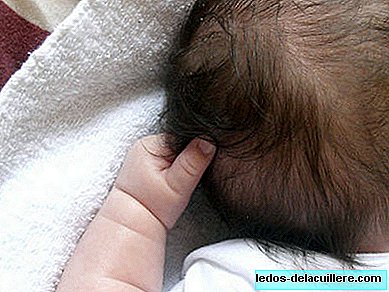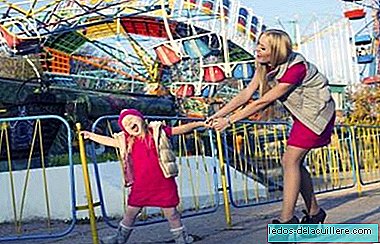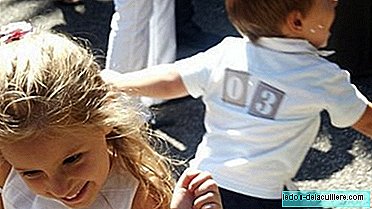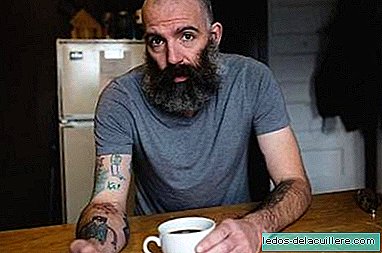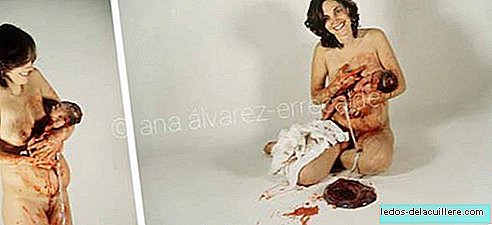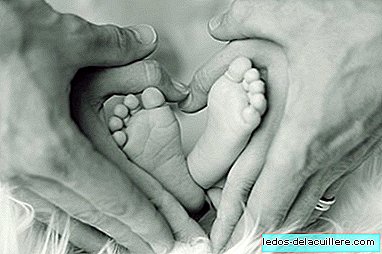
The worst moment that parents who anxiously await the birth of their child can live is to receive the terrible news that their baby has died or was born in a situation of vulnerability. Often the information It is transmitted by health personnel with little touch and sensitivity, and this deeply marks the parents.
Therefore, last June the Unicap Foundation launched the "Spinning lives" project, which will gradually be implemented in Spanish hospitals. This is intended train health personnel so that they know how to properly address this difficult news and accompany the family from an emotional point of view.
"Advise, care, inform and accompany"
According to the team of professionals who work in "Hilando Vidas", the moment in which parents receive the news that their child was born with a disease or a special condition, or that he died during childbirth, is one of the most critical of their lives.
Unfortunately, on many occasions this moment is treated poorly by the healthcare environment due to the lack of preparation, so it is remembered by parents, with great sadness.Therefore, this project aims to train both professionals in the private and public hospital field of Spanish health, as well as the closest family environment, to accompany the family to adequately address this difficult news.

This is explained by Dr. Monica Estacio, President of the Unicap Foundation and Co-Founder of the "Spinning Lives" project:
"This situation is very hard, and in almost all of these cases, health professionals treat such an important issue in a poorly maintained way, fundamentally because they do not feel trained, prepared or updated before the shock of having to give a critical or different news, which transforms a happy moment, into a less pleasant one "
"Families tend not to react to the news, stop listening at the same time they hear disability, medical problems, perinatal death ... In some cases they want to get more information, but without having to endure cold, distant and difficult words. On other occasions , they simply want loneliness and silence, to assume that moment of mourning, blocked, unable to face the real cause of the unleashing. "
"That is why it is important to advise, care, inform and accompany the parents at the time they are told that the child who has just been born has had perinatal death or has been born in a situation of vulnerability."
Monica is also the mother of a child with Down syndrome, and the way he received the news when his son was born was what made him realize the enormous void that exists in health in this field:
"We live in the 21st century, the century of technologies and the huge hospitals. But there is a lack of training to know how to communicate this kind of news in a more humane, close and empathetic way. It is very difficult for health workers to give such news because they don't prepare for it, and because every family and every situation is unique "
How is the work of "Spinning lives"?
The project was born last June with the hope of getting the first words ("first news") that parents hear before a situation of perinatal death or vulnerability of their baby, do not mark their lives negatively.

"We should stop to think about such strong situations, like in the same hospital room some parents receive a healthy son, and others a son who has not survived or born with medical problems. This is why you have to work hard, to create the appropriate procedures to get the news, under the most appropriate conditions "- says Dr. Estacio.
For this, they have developed a series of specific guidelines so that professionals can approach each specific situation and know how to treat it in a natural and close way, with words of encouragement, love and empathy.
Its lines of action are oriented to the following objectives:
Prepare documentation and material, rigorous and concrete, on the situations to be taken into account by professional health teams, given the vulnerability that certain circumstances imply at the time of delivery, such as prematurity, Down syndrome, disability, rare diseases, prenatal, perinatal or postnatal loss ...
Planning training and awareness days, oriented to health professionals, so that they become aware and act appropriately in this reality.
Make a specific protocol according to each situation, to strengthen that child's bond with their parents, to resolve the uncertainty of these families and to produce constructive changes in their vital situation.
And sometimes, the birth of the baby comes accompanied by multiple emotions for parents who prevents being able to do their best: Do not know how to receive a baby who was born early, who has a genetic disorder, a disability or a disease.

That is why it is important that each family can have space to bond with their baby, be alone with him, hug him, make skin with skin, talk to him, meet him ... and not prioritize non-urgent measures regarding the diagnosis of a disability or illness.
There are many families who have experienced these situations in the first person and who urgently demand protocols for accompaniment and emotional attention by health personnel. Hopefully the project "Spinning Lives" can help these parents to face their new reality, from respect, the acompaniment and love.
Pixabay photos, iStock
In Babies and More Prenatal and Neonatal Death, Seven normal feelings if you are a mother or father of a premature baby, "When I got home I had to face an empty crib", the painful words of a mother who lost her baby during childbirth


